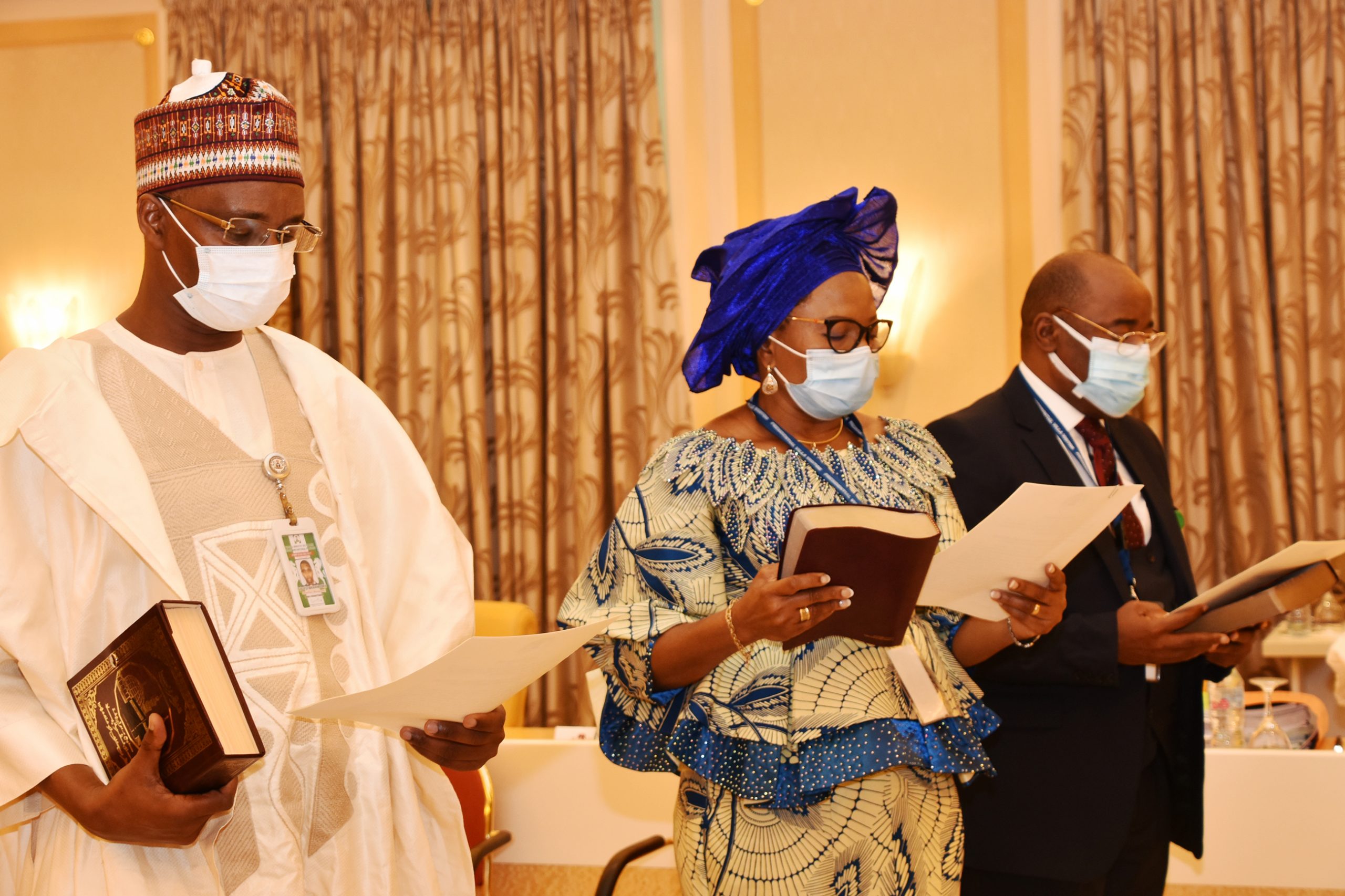Editorial
NDA: FG Must Act Now

A renewed threat of blitzkrieg aimed at paralysing Nigeria’s battered economy has emerged from the Niger Delta Avengers (NDA), one of the well-known militant organisations in the Niger Delta region. The Avengers have threatened to launch invigorating assaults on the country’s oil and gas installations in the region following allegations of continued neglect by the Federal Government.
In a declaration by the group, a new “Operation Humble” proposing a fresh round of bombings of oil and gas facilities to weaken the country’s economy, is considered by them in the coming few days. The body stated: “This operation shall be coded ‘Operation Humble’ aimed at bringing down targeted oil and gas installations in the Niger Delta, capable of humbling the economy into permanent recession.”
The fierce militant organisation also threatened to attack important politicians and personalities from the region for their roles in the under-development of the area. The militants accused the Federal Government of failing to meet their demands to speed up the development of the region since they declared a ceasefire, following the intervention of leaders and stakeholders from the area.
As part of its demands, the NDA called for immediate restructuring of the country, creation of two additional states and more local government councils in the region, the allocation of operational licences for marginal fields to Ijaw people, and the reconstitution of the Niger Delta Development Commission (NDDC) Board, among others.
Given the track record of the NDA, many oil and gas observers are already nervous, expressing serious concern, especially as the bellicose organisation is known to have carried out deadly attacks on the country’s oil and gas infrastructure in the past. It is, therefore, considered injudicious to treat their warning lightly.
Recall that in 2016, the NDA assaulted many oil fields and terminals, nudging the country’s oil production and export down considerably to between 1.4 million and 1.5 million barrels per day from its capacity of 2.2 to 2.3 million barrels per day. Nigeria had scarcely recouped from the impact when the Covid-19 pandemic curtailed the growth of the sector. The current foreboding is, therefore, coming at a most inappropriate time when the country is least disposed to be encumbered with another round of oil and gas sector crises.
Curiously, the intimidatory remark was expressed less than 48 hours after President Muhammadu Buhari met with the leadership of the Niger Delta and Ijaw National Congress (INC), at the Presidential Villa, and the germane issues were discussed, especially call for restructuring of the Federation, and the inauguration of a Board for the NDDC.
Buhari had advised that the new NDA foreshadowing was unnecessary, stating that the government was addressing the concerns of the Niger Delta. At present, the NDDC remains a patient in the ICU. Since its inception in 2001, the country’s public space has been inundated with appalling stories of ongoing forensic audit activities to unravel the pit of internal administrative and operational transgressions that have paralysed the interventionist agency.
In the President’s usual practice of handling the situation in the Niger Delta, we must not miss the deployment of a large-scale military presence in the region to curb threats to infrastructure. Under the circumstances, this option, most often adopted by the government, does not seem to be achieving the expected results, as industry watchers warn that militancy is becoming more and more prevalent in the region.
As a result of the prevailing situation, the Federal Government must review its position concerning the Niger Delta. They must readjust their policy direction from the standpoint of the people in the region, who are concerned about the current state of affairs, especially the inconsistency related to the existing palliative care for their plight.
The NDDC, which was created specifically to thwart the present state of affairs, is a great example. Its operative failures and the ensuing launch of the forensic audit exercise on it substantiate the complete breakdown of the commission’s objectives and the need for a new set-up to supplant the old order.
Since the appointment of a substantive board of directors to redesign and refocus the NDDC is one of the cardinal demands of the NDA and other recalcitrant interests in the region, then, it is in the long-term interests of the government, the region, and the country as a whole to oblige such requests as soon as possible.
All things considered, the threat by the militant group to destroy oil installations is strongly denounced. We believe that violence cannot be the means to address grievances. There are peaceful ways and the group should exploit them. In addition, members of this group are urged to channel their grievances to the appropriate authorities and wait for action to be taken on them.
However, we request the Federal Government to move swiftly to meet the age-old demands of the militants and the Niger Delta people. On the inauguration of the NDDC board, our position is clear; forensic audit should never be employed as an excuse to delay its investiture. The country is already undergoing severe economic hardship. Therefore, anything to make the predicament worse at this point should be prevented.
Editorial
As NDG Ends Season 2

Editorial
Beginning A New Dawn At RSNC

Editorial
Sustaining OBALGA’s Ban On Street Trading

-

 News2 days ago
News2 days agoAmend Constitution To Accommodate State Police, Tinubu Tells Senators
-

 Politics2 days ago
Politics2 days agoSenate Urges Tinubu To Sack CAC Boss
-

 News2 days ago
News2 days agoDisu Takes Over As New IGP …Declares Total War On Corruption, Impunity
-
Business2 days ago
President Tinubu Extends Raw Shea Nuts Export Ban To 2027
-
Business2 days ago
Crisis Response: EU-project Delivers New Vet. Clinic To Katsina Govt.
-
Business2 days ago
President Tinubu Approves Extension Ban On Raw Shea Nut Export
-
Rivers2 days ago
Etche Clan Urges Govt On Chieftaincy Recognition
-
Sports2 days ago
NDG: Rivers Coach Appeal To NDDC In Talent Discovery

